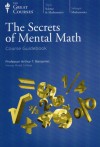14
Followers
42
Following
Par Lance
Par Lance is where I come to talk with my friends, mainly to discuss books.
Par can mean at face value,and Lance is just me.
From the Oxford English Dictionary:
Parlance /'pa:l(Ə)ns/
noun [mass noun] a particular way of speaking or using words, especially a way common to those with a particular job or interest: dated terms that were once in common parlance | medical parlance.
origin late 16th cent. (denoting speech or debate): from Old French, from parler 'speak', from Latin parabola 'comparison' (in late Latin 'speech').
Currently reading

Secrets of Mental Math: The Mathemagician's Guide to Lightning Calculation and Amazing Math Tricks

Stephens' C# Programming with Visual Studio 2010 24-Hour Trainer

The Stonor Eagles
 I just love good historical fiction! It brings history to life for me in a way that those boring history lessons at school never did. My favourite writers in this genre are Conn Iggulden and Bernard Cornwell, although there are many others who light up all of my lights.
I just love good historical fiction! It brings history to life for me in a way that those boring history lessons at school never did. My favourite writers in this genre are Conn Iggulden and Bernard Cornwell, although there are many others who light up all of my lights.There are many books about the Battle of Agincourt, but this has to rate as one of the best. That is unless you want the non-fiction, factual version of events. But who is to say what is factual? There is even much disagreement amongst the scholars of the period.
The story, as told by Cornwell, follows the life of an archer, Nick Hook. He is outlawed early in the narration for hitting a priest. The priest deserved much more than a punch in the stomach for what he did, but Hook would've been caught and hung had he meted out the correct justice.
Nick is a brilliant archer, and soon finds himself in France, in Soissons, where he witnesses some horrendous betrayal and violence, but those events lead to one positive outcome: he meets the lady who is eventually to become his wife.
I can't say much more without giving away the whole story, and I don't want to spoil it for you.
There is a lot of graphic violence in this book, but it is, I believe, the reality of that age.
One totally unbelievable episode in the book comes towards the end. Sir Martin eventually manages to corner Hook's wife, Melisande, and attempts to rape her. Whilst pinned down by her assailant, she manages to reach into her personal sack with one hand, load her crossbow, jam it between her body and his (wouldn't it be too big?), and pull the trigger. Ridiculous! If she'd stabbed him in the neck with a crossbow bolt, or a small dagger, I could've swallowed that, but this version of events was just impossible!
The narrative was generally fast flowing, but there were occasions when there was just too much detail, and that slowed the whole story down and irritated me somewhat.
I also felt that the book could really have benefited from the inclusion of a glossary of definitions of armoury, clothing, weaponry and other terms of the age. I don't wish to interrupt my enjoyment of the story by breaking off to consult my dictionary or encyclopaedia.
This small criticism aside, this is a really great read, and I would recommend it to all fans of historical fiction and Bernard Cornwell.
Note: You may well ask, "Why Azincourt rather that Agincourt?" The answer is that this is, and was, the correct spelling of the name of the nearby village which gave its name to the famous battle.



